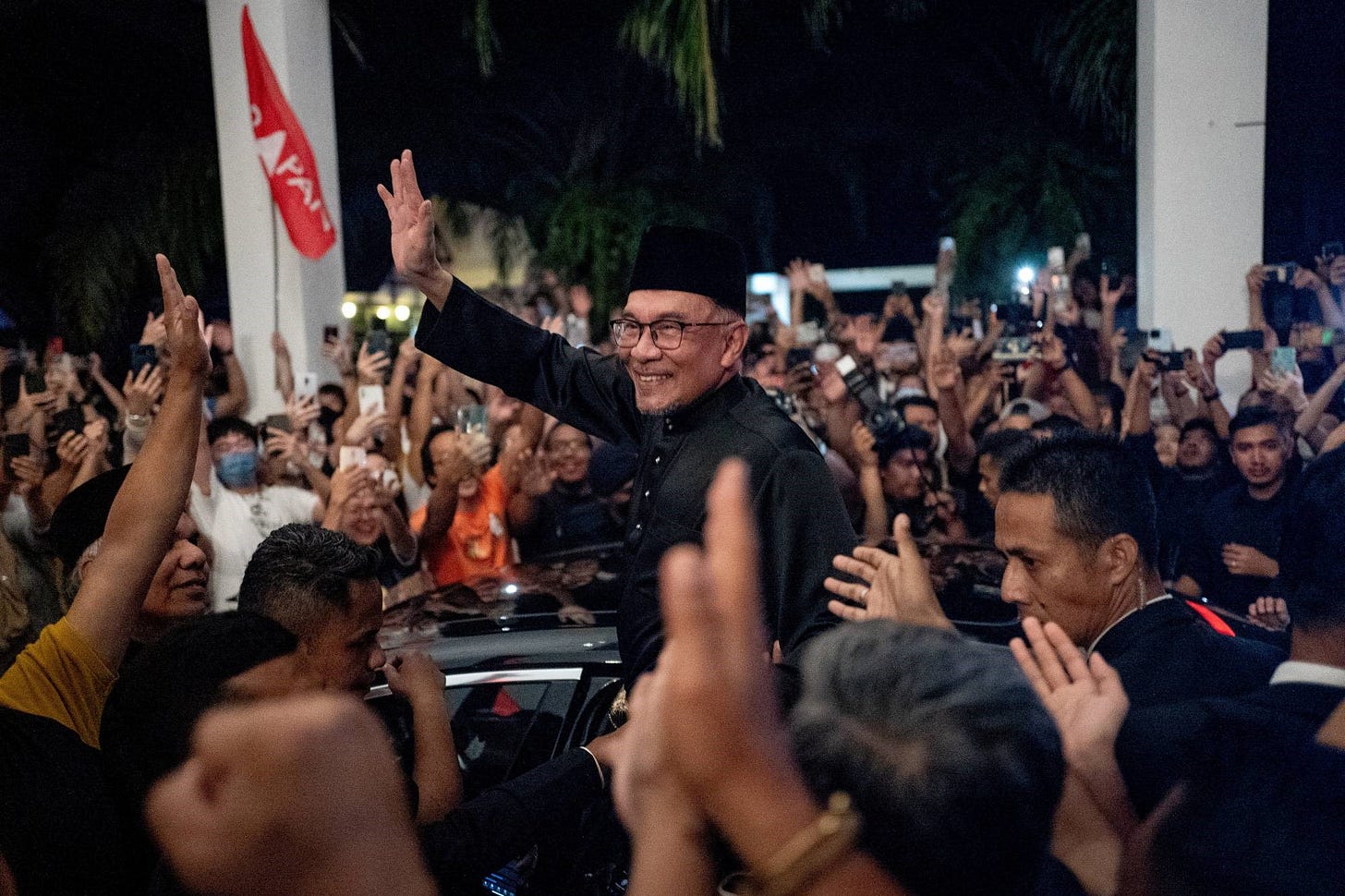By: Murray Hunter
With Anwar Ibrahim becoming Malaysia’s 10th prime minister, he now faces an avalanche of expectations. Many see him as a messiah, who come to fix the problems facing the country, one heading into uncertain economic times with rising inflation, a falling ringgit and depressed economic buoyancy fed by a looming world economic slowdown.
Mal…
Keep reading with a 7-day free trial
Subscribe to Asia Sentinel to keep reading this post and get 7 days of free access to the full post archives.

